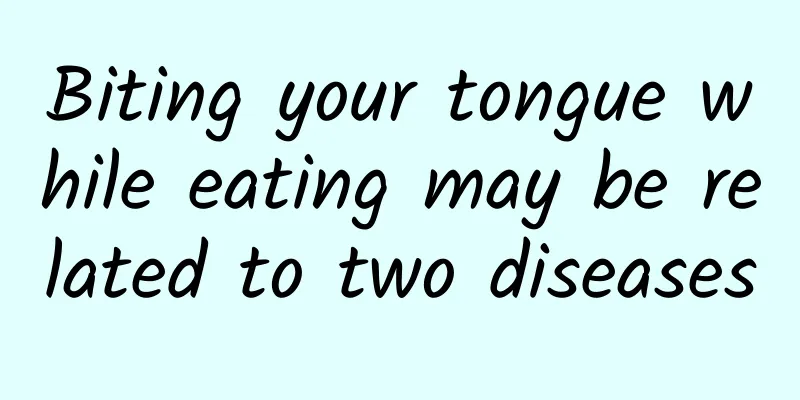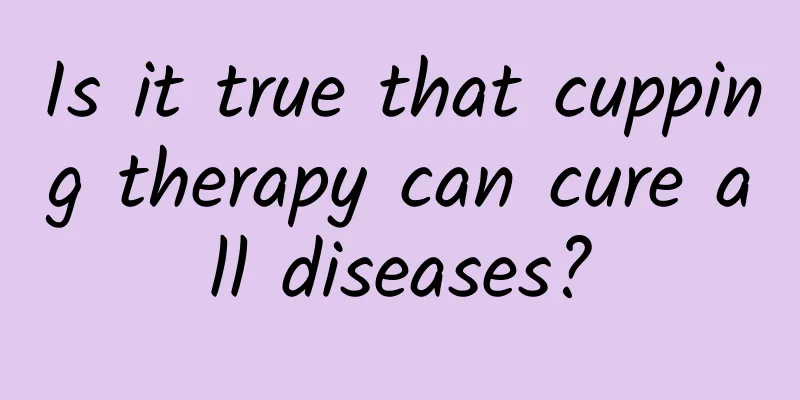Why does the left side of the appendix hurt?

|
Appendicitis occurs in different types, including acute and chronic. If not treated in time, it will cause more serious complications, so everyone should pay attention to it. Some people say that the pain will be more severe when an appendix occurs, and sometimes it is not just the appendix that hurts. Why does the left side of the appendix hurt? This is a common situation where pain in one area can also be felt in the surrounding area. Why does appendicitis cause pain on both the left and right sides? When appendicitis occurs, pain may occur on both the left and right sides of the abdomen. Because the appendix is generally located at the midpoint of the line connecting the right navel and groin, the typical acute appendicitis abdominal pain first occurs around the navel or in the upper and middle abdomen, and after a few hours it moves to McBurney's point in the right lower abdomen, with fixed tenderness. However, if the appendix is in an abnormal position, that is, the appendix is not in the right iliac fossa, the location of abdominal pain will vary depending on the location of the appendix, so appendicitis may cause pain on both the left and right sides of the abdomen. Clinical symptoms: In addition to abdominal pain, patients with acute appendicitis may also experience fever, nausea, vomiting, decreased appetite and other symptoms. If appendicitis is not treated in time and the appendix perforates, peritonitis will occur, with tenderness and rebound pain in the entire abdomen. Appendicitis can be divided into acute and chronic. The symptoms of acute appendicitis appear quickly and urgently, and are prone to fever, nausea, and vomiting. Chronic appendicitis develops slowly, first with mild abdominal discomfort and decreased appetite, and abdominal pain will be felt after a few days. It is recommended that if you have the above symptoms, you should go to the hospital for examination as soon as possible, otherwise it is easy to develop appendicitis perforation or even peritonitis. How to treat appendicitis: It is recommended to undergo surgery to remove the appendix. In order to prevent reinfection, antibiotics should be used before and after the operation. If the patient is unwilling to undergo surgery, some broad-spectrum antibiotics such as ceftriaxone can be selected under the guidance of a doctor according to the symptoms. However, the recurrence rate of non-surgical treatment of appendicitis is very high, so surgical treatment is best for acute appendicitis. Chronic appendicitis can be treated with medication. Eat a light diet on a regular basis to prevent appendicitis. Do not eat spicy and greasy food, such as greasy and spicy chicken, duck, fish, hot pot, etc., and do not eat food that easily produces gas, such as soybeans and other bean foods. Do not drink alcohol, do not eat raw or cold food, eat less fried and indigestible food, and avoid overeating. Secondly, don't overwork yourself, because excessive fatigue will reduce the body's resistance. In daily life, pay attention to drinking enough water, adjust your diet structure, eat more vegetables and less meat, and eat more soft food and less hard food. |
<<: Farting but not defecating after appendectomy
Recommend
In daily life, how can men prevent nocturnal emission?
Many men find their underwear wet when they wake ...
Is it better to soak saffron in boiling water or warm water?
It is well known that saffron is a traditional Ch...
Female hip pain on the right side
Everyone needs to be clear that female hip pain i...
What are the differences between old cold legs and rheumatism?
Rheumatoid includes diseases such as rheumatism. ...
Nourishing yin and replenishing blood, these 5 great delicacies are worth a try!
To replenish qi and blood, any method in traditio...
The role of yeast
We probably eat bread frequently in our daily liv...
Is it good to use salt hot compress for lumbar disc herniation?
At present, there are many methods for treating l...
The efficacy of Panax notoginseng boiled chicken
As we all know, hens have the great effects of no...
What are the ways to get rid of the foul air?
"Zhuo" means dirty and turbid, and &quo...
What to do about allergic rhinitis
Allergic rhinitis is a common problem in life, so...
What to do when hemorrhoids attack? Dietary remedies are more effective
Hemorrhoids are a very disturbing thing because t...
Will ovulation be advanced or delayed?
Many women prepare for pregnancy for a long time,...
7 questions to test how long your body can last?
How old is he? Don't think that you can know ...
Venipuncture angle
The angle of venipuncture is mainly determined by...
What should I do if there is a lot of nasal mucus in my nose after catching a cold?
Cold is a very common disease. Its symptoms gener...









